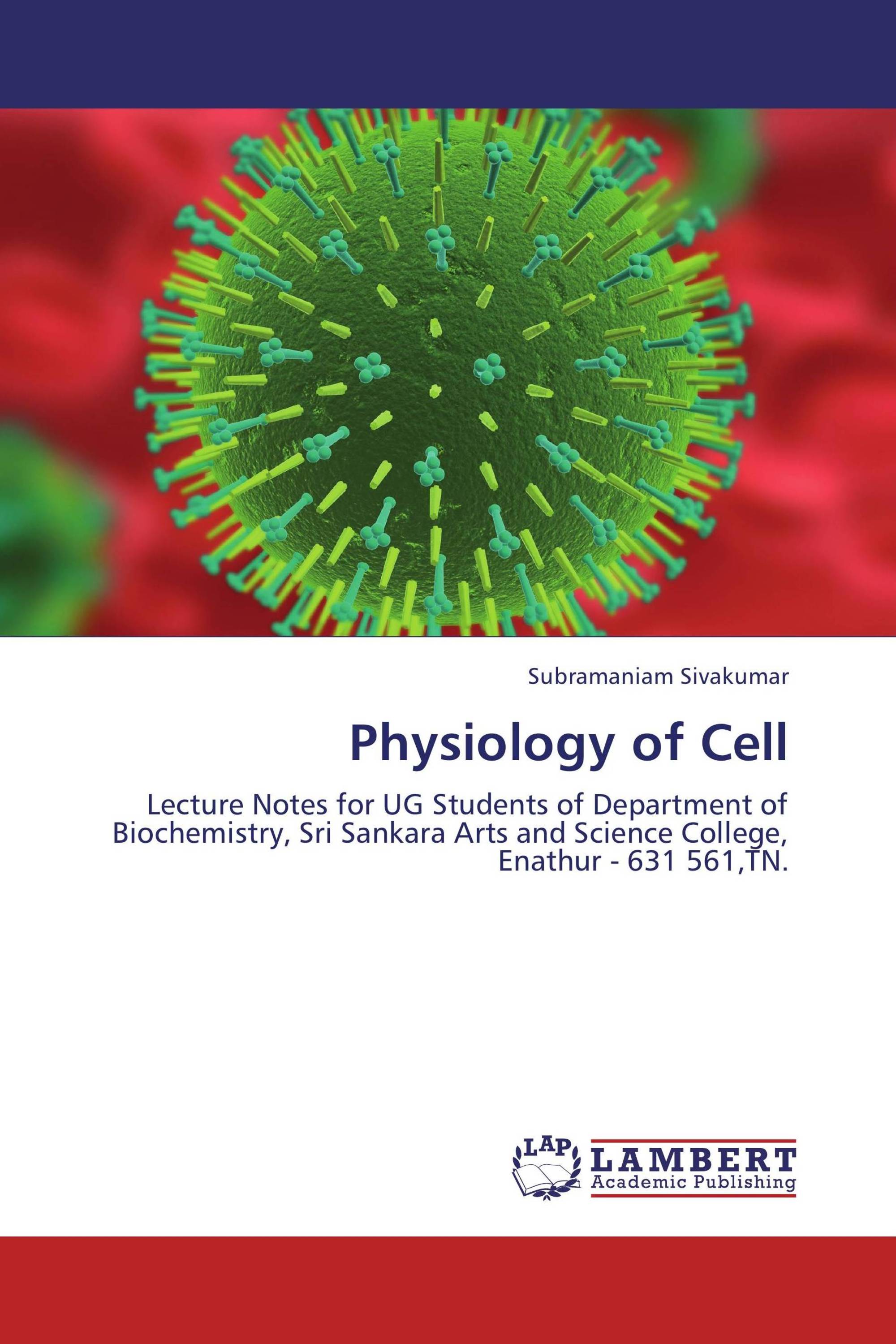Physiology of Cell
Lecture Notes for UG Students of Department of Biochemistry, Sri Sankara Arts and Science College, Enathur - 631 561,TN.
LAP Lambert Academic Publishing ( 2011-08-24 )
€ 59,00
The cell is the functional basic unit of life. It was discovered by Robert Hooke and is the functional unit of all known living organisms.The word cell comes from the Latin cellula, meaning, a small room. There are millions of different types of cells. There are cells that are organisms onto themselves, such as microscopic amoeba and bacteria cells. And there are cells that only function when part of a larger organism, such as the cells that make up your body. The cell is the smallest unit of life in our bodies. In the body, there are brain cells, skin cells, liver cells, stomach cells, and the list goes on. All of these cells have unique functions and features. And all have some recognizable similarities. Organisms contain many different types of cells that perform many different functions. Knowing the components of cells and how cells work is fundamental to all biological sciences. Appreciating the similarities and differences between cell types is particularly important to the fields of cell and molecular biology as well as to biomedical fields such as cancer research and developmental biology.
Book Details: |
|
|
ISBN-13: |
978-3-8454-4057-6 |
|
ISBN-10: |
3845440570 |
|
EAN: |
9783845440576 |
|
Book language: |
English |
|
By (author) : |
Subramaniam Sivakumar |
|
Number of pages: |
160 |
|
Published on: |
2011-08-24 |
|
Category: |
Biochemistry, biophysics |




